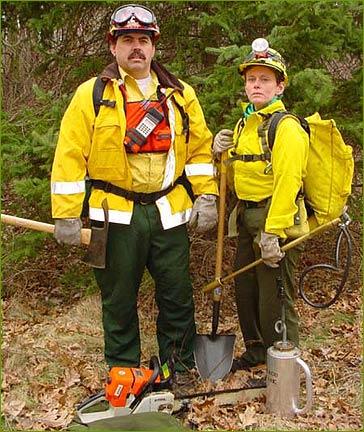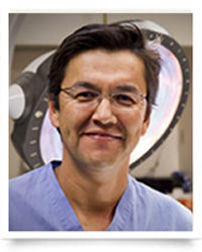“Can a Physically Demanding Job Cause an Early Onset of Heart Valve Disease?” Asks Jerry
Written By: Adam Pick, Patient Advocate, Author & Website Founder
Page Last Updated: December 30, 2024
I just received an interesting question from Jerry. In his email, Jerry writes, “Adam, I’m 53 and a recent mitral valve repair and aortic valve replacement patient. My question is… Can a physically demanding profession – like wildland firefighting — contribute to, cause an early onset, or accelerate the development of valve disease in a previously healthy person?”

To help Jerry better understand the progression of valvular disease, I contacted Dr. Luis Castro, a leading heart surgeon at MarinHealth Heart and Vascular Institute in Marin County, California. Doctor Castro offered several interesting thoughts for Jerry that I decided to share with our community. Here is Dr. Castro’s response:
Jerry, that is a fantastic question! Although the direct relationship between stress and cardiovascular disease is still under scientific scrutiny and investigation, we can all agree that stress appears to be playing a major role in modulating blood pressure and influencing basic “wear and tear” on the human body. The human heart is a mechanical pump, with moveable parts, and because of that, is prone to injury as well. The fact that most of us escape this planet without valvular heart problems is a miracle in and of itself! Consider the amazing design and beautifully functional structure of your heart valve leaflets. They open and close with every beat of your heart, approximately 80- 100,000 times per day… that is at least 1.5 billion times by the age of 50!

Dr. Castro then touched on the potential impact of blood pressure and physical stress specific to the functioning of our valves.
Blood pressure, or stress, can be simply compared to the engine idle of your car. Not much wear is being demanded at rest — when the engine is idling at less than 1000rpm. Now imagine your car in neutral with the gas pedal slightly depressed and idling at 3000rpm… the engine is working harder, and it is just sitting still at 0 miles per hour. Now, add a slightly malformed valve at birth, or acquired injury by infection, etc., and you add on top of this, increased vulnerability to wear and tear by additional stresses inflicted by blood pressure and other modulators… It is certainly within reason to believe that added stress can contribute to early valve deterioration. We are all deeply grateful to fire fighters and alike who risk their lives on the job as part of a “routine” days work. I hope that this helps. Luis Castro, MD
Thanks to Jerry for his question and a special thanks to Dr. Castro for sharing his clinical experience and research with our patient community.
Keep on tickin!
Adam
|
Travis Watson says on October 2nd, 2013 at 12:57 pm |
|
Jerry, I agree with Dr Castro. My entire life I’ve excercised exreemly hard. Much, Much harder than the above average person. This can have the same impact one your heart and blood pressure as stress or drug abuse. I had Mitral repair at age 29 for severe regurgitation. My valve was fixed and one month after surgery my leakage was mild. within 2 months I was back to my normal strenous exercises and had another echo done at 6 months post surgery. That echo showed upper levels of moderate reguritation. I asked the doctor if my workout routine could be causing this and he said no and to keep doing what I do. So continued to do what I do. I had another echo at 2 years post op (July 2013) which showed the same upper level moderate reguritation. After that echo I drastically reduced the intensity and amount of my workouts. Basically trying to weeken my heart. After 2.5 months of reduced intensity and recording my blood pressure four times a day, my blood pressure has significantly dropped from an average of the upper 130’s to the lower 120’s. I will go for another echo in December to see if the requrgitation has slowed down back to a mild level. If my experiment is correct, that may mean that I never needed surgeru in the first place. I’ve never done a drug in my life but I am strongly thinking that excessive excercise or excessive physical or mental stress can have the same damaging effects on your heart as years of cocaine or steroid abuse. |
 |
|
Keorapetse Mogaadile says on October 3rd, 2013 at 3:17 am |
|
I would like to thank Adam for such a wonderful discussion with Dr. Castro. I have also done Mitral and Aortic valve replacement in September 2010. I am a police officer and I cannot cope at all with police duties. At at one time during my echo (June 2013) I was told that my mitral valve is having a small leakage which might require correction at some point and also that my heart muscles are very weak most probably due the fact that my heart might have not fully recovered from the operation which I have done 3 years back the reason I was having some chest pains which are now part of my life. I have the same questions with Jerry so that I can see my way forward of which I don’t know what to do. Again big ups to Adam because most of these things we live with them and knowledge is power. |
 |
|
Travis says on October 3rd, 2013 at 11:09 pm |
|
My answer is yes – and no. I was diagnosed with mild-moderate aortic regurgitation when I was 14, due to a bicuspid valve. At 16 I started my fire service career as an Explorer. At 18 I joined the U.S. Forest Service as a firefighter on an engine company. At the same time I joined another volunteer fire department. |
 |
|
Travis Watson says on October 4th, 2013 at 7:05 am |
|
You are in a slightly different boat than me in that yours is a congenital issue with your bicuspid valve which is likely to leak. I personally think that I just damaged my vlave by my exercise habbits. |
 |
|
Travis says on October 9th, 2013 at 9:53 pm |
|
Travis, I’m pretty up on my history and numbers, and I keep a personal copy of all of my records – but I don’t know which number in particular refers to the regurgitant volume. Can you help me out? |
 |
|
Keorapetse Mogaadile says on October 14th, 2013 at 2:09 am |
|
Dear Travis |
 |
|
Travis Watson says on October 15th, 2013 at 1:16 pm |
|
On the echos that I’ve had there is an area called “MR Volume” Some of my echos show this number and some do not. I don’t know why they sometimes list it on the report and sometimes not? Now that I am doing this experiment I will tell them before the echo that I want the MR Volume listed on my report. There may be some other numbers on the echo report that indicate regurgitation volume but I’m not sure what that number is. Sorry I couldn’t be more help. |
 |
|
Travis says on October 17th, 2013 at 3:37 pm |
|
Sorry, no MR or AR listed on my echos. Although I’ll have to ask when I have my next one in December. I’ll update you then… Travis |
 |
|
John Lim says on June 28th, 2014 at 7:16 am |
|
Thank you for your posting. What kind of cardiac centric training do you do? I also have mild-moderate AR. |
 |
|
Travis Ederer says on July 15th, 2014 at 6:30 pm |
|
John, I really don’t limit my cardio training at all. I run, hike, bike, etc. I work out an average of 6 days per week, where I’ll do at least 45 minutes of cardio and some light circuit workout. |
 |
|
David says on August 3rd, 2014 at 6:22 pm |
|
I’m a firefighter for the city of Buffalo last year in July I injured my back enduring emergency room exam they heard a large murmur. Come to find out my chordee tendon broke and I had next severe mitral valve regurgitation. it was so bad that my heart was already enlarged I was asymptomatic even to the day of the surgery. I have never had any heart problems in my life I spent four years in a military, have had had multiple surgeries, even earlier that year had had an upper G.I. and no one had detected any murmur! I don’t have high blood pressure I don’t smoke I’ve got no vices that would’ve caused heart problems. My doctor and cardiologist just said that it was hereditary, although there is no history of heart murmurs and my family or heart disease! Even though my Heart problem was caught on duty after a fire when I injured my back ( herniated disc )the city of Buffalo denied my heart problem as an injury. Is there any information or anyone I can contact that could help me with my heart problems being connected with the strain of work? |
 |
|
Rick Siler says on May 10th, 2015 at 11:39 pm |
|
David, I’m a now retired Fire Captain who had mitral valve repair surgery after a routine physical detected a murmur that I’d never had before. After 28 years on the job, no cardiac history, and almost no IOD time off, they accepted it as job related. Like me, yours was detected by accident, or providence. I was asymptotic as well. A year later my cardiologist said I was about 6 months away from sudden cardiac death. Congratulations on a new lease on life. Hire a recommended work comp attorney and the details will work out. Know whether you want to continue your career or retire before you start the process. Good luck. Rick |
 |











